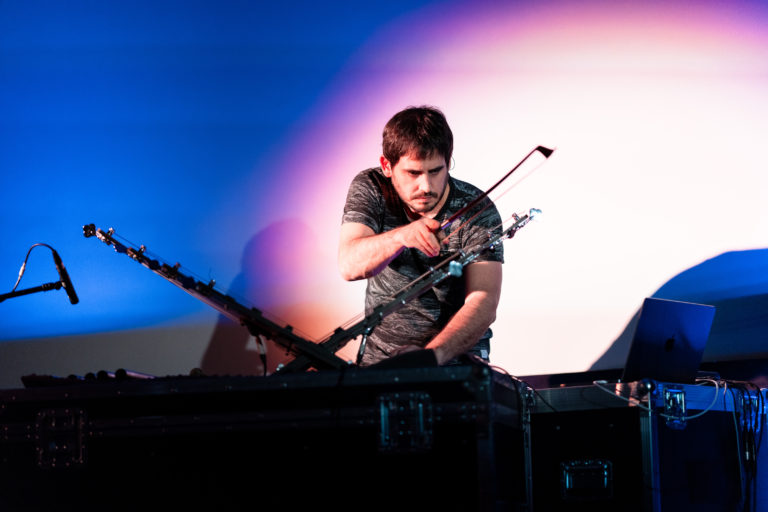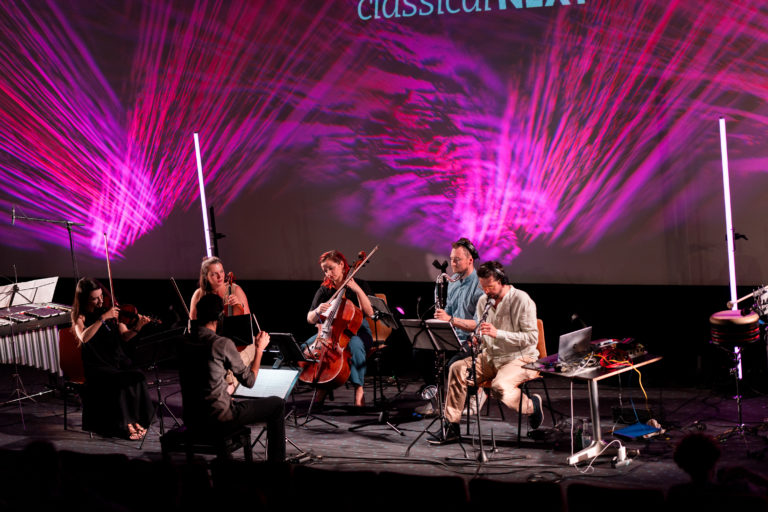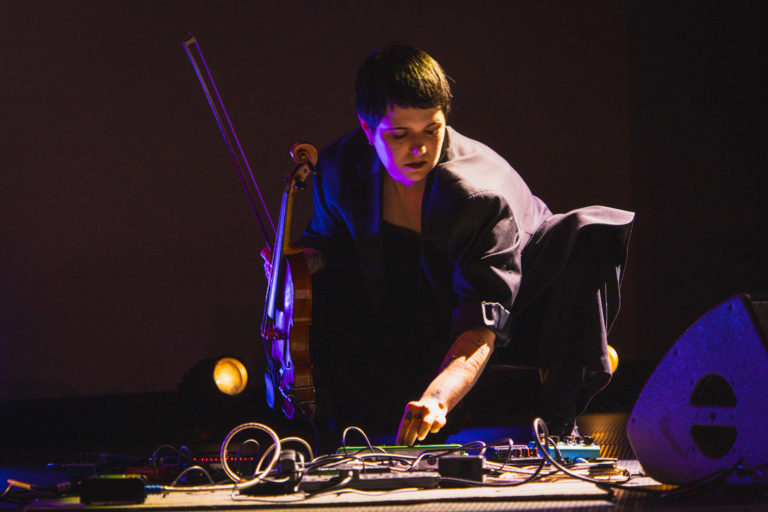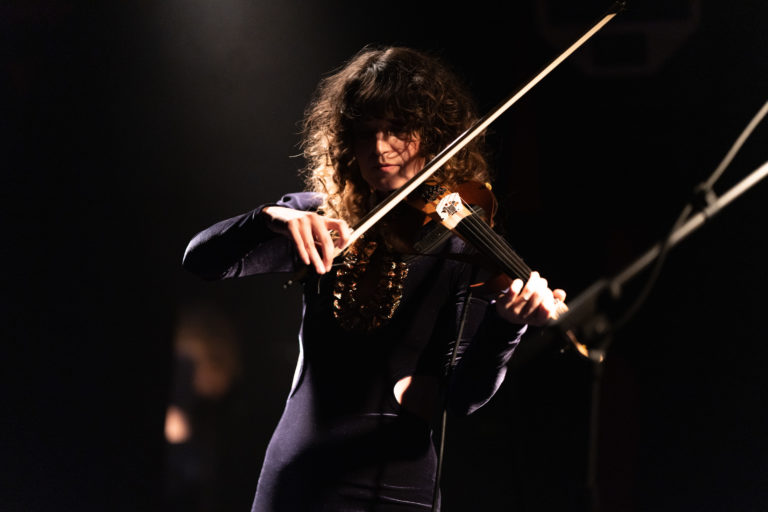Author: Mark Pemberton
Classical music is not confined to gilded concert halls or publicly funded orchestras anymore. Beneath the appearance lies a thriving independent scene currently reshaping the genre—one that thrives in unexpected venues, amplifies daring composers, and finds new audiences beyond traditional institutions. Across Europe, this independent scene is reimagining what 'classical' can sound like.

Classical NEXT 2024, Mario G. Cortizo – © Twinematics
What do you think of when you hear the words ‘classical music’? Large symphony orchestras, subsidised with generous quantities of public funding? Well yes, that is a major part of the classical music industry. But underpinning it is a vibrant independent scene, from small ensembles performing in local found spaces, to specialist indie labels reaching global audiences. And at the heart of this movement are contemporary composers.
An Underrated Scene Outside Usual Musical Paths
Contemporary music often has to work off a different model to commercial music. There can be government and philanthropic funding involved, supporting orchestras to commission new works, festivals to book independent artists and ensembles, and direct grants to composers. And the composer will usually be given a commissioning fee by the promoter or ensemble to write the work in advance of performance. This is because the classical and contemporary music industry continues to suffer from a stubborn ‘market failure’ model. By this I mean that in effect, every concert loses money, as box office receipts will rarely cover the costs of production and performance, from musicians’ fees to music hire and venue rental. It is simply too niche to operate on a fully commercial basis. So government and private money has to plug the gap.
But this reliance on external funding does not crush the spirit of invention. The contemporary music scene is fizzing with innovation, from performing in multi-story car parks to taking performers directly into schools and communities. Many hundreds of classical and contemporary ensembles have managed to navigate the live and recorded industry without public subsidy. And there are many artists and small-scale ensembles taking contemporary music in bold new directions, blurring the lines between commercial music and ‘art music’. This blurring of the lines can be heard clearly in recent film scores like Arrival or The Joker with sound worlds rooted in contemporary classical.

Classical NEXT 2024 – © Twinematics
It is the same in the recording industry, with hundreds of small independent labels managing to thrive in the challenging landscape of music streaming, finding a niche audience for works that go well beyond the core canon of classical music.
Much of this work is celebrated each year at Classical Next, the international meeting and platform for art music professionals, featuring an interactive conference, project pitches, showcase concerts, expo, innovation awards, and networking. With previous editions taking place in Munich, Vienna, Rotterdam, Hannover, and Berlin, in April 2026 it heads to Budapest, hosted by contemporary music hub Hangvető.
This is not to devalue the fact that survival of such a niche artform is challenging. With the core classical repertoire dominant in the live and recorded marketplace, and with few and ever decreasing outlets in broadcasting, the contemporary music scene can easily be sidelined as ‘box office poison’. But that is to miss the point. The success of the more popular end of the classical music industry relies on the artform being refreshed and made relevant for contemporary audiences. Every piece in the canon was once contemporary. Classical music organisations often complain that their audience is ageing and dwindling. Ignoring the vibrancy and innovation that contemporary artists bring to the genre will make that a self-fulfilling prophecy.

Classical NEXT Berlin 2025, Acid Bogen – © Christoph Mangler
An Exemplary Dynamic
Here are some case studies that illustrate the diversity and innovation of the contemporary music scene in the UK and beyond:
- nonclassical presents new classical, experimental and electronic music in innovative ways to reach diverse audiences. As a music promoter, record label and events producer, nonclassical develops, produces and promotes innovative music with an artist-led approach, supporting artists’ development through its platforms and programmes. From commissioning unconventional works—including its recent Concerto for Drum Machine and Orchestra—to collaborating with new music veterans, such as collaboration with Jim O’Rourke and Langham Research Centre, nonclassical pushes the boundaries and conventions of classical, electronic and experimental genres.
- The Night With… is not your classic concert. Based in Glasgow, it presents salon style concerts of new music in intimate, informal venues across Scotland and further afield. Run by Matthew Whiteside, it provides development and commissioning opportunities for young and emerging composers. Since 2016 there have been almost 100 concerts with 72 world premières and 28 commissions in Glasgow, Edinburgh, Belfast, Dublin, and Aberdeen. Performers have included Garth Knox, the Hermes Experiment, Red Note Ensemble, Juice Vocal Ensemble, Ensemble Offspring, Hathor Consort, Stockholm Chamber Brass, Joanna Nicholson, Frances Cooper, and Carla Rees. Since 2020, they have released ten albums on their record label TNW Music with the album focusing on the premieres and commissions presented during the concerts. They are also developing a festival model based around commercial music multi-stage festivals with the first edition happening in 2023 and the next edition taking place in 2027.
- NMC Recordings is a unique, award-winning arts charity and record label, dedicated to the promotion of exceptional contemporary classical music from Britain and Ireland. The vital role that it plays in the new music sector means that without NMC, hundreds of important works would not be recorded and heard by audiences across the world. NMC supports composers at every stage of their career: from the emerging names taking part in talent-development partnerships, to the rising-stars releasing their first portrait album in the Debut Discs series, and through to music by established voices that needs to be heard and is not available elsewhere.
- PRXLUDES is an independent, interview-led platform documenting contemporary music “beyond genre,” founded in 2020 by composer Zygmund de Somogyi during their Masters at Royal Birmingham Conservatoire in response to the isolation of the first Covid-19 lockdown. Since then, it has published over 120 in-depth interviews with composers, artists, and practitioners from more than 20 countries, championing emerging and established voices and collaborating with organisations including Nonclassical, Cheltenham Music Festival, and PRS Foundation, while featured artists have gone on to work with the Royal Philharmonic Society, Sound and Music, the London Symphony Orchestra, and Britten Pears Arts. Today, PRXLUDES also commissions guest articles and runs in-person concerts most recently around PRS Foundation and Southbank Centre’s New Music Biennial 2025 sustaining a connected, international conversation around new music. The work performed at the New Music Biennial was by another contemporary composer Alex Groves who reimagined regency dance forms as contemporary club music performed by pianist Zubin Kanga.
- Kaleidoscope Night is Dublin’s long-running, genre-blind salon series, bringing classical, contemporary, experimental, jazz, and folk into an intimate, informal setting. Founded in 2009 by violinist Clíodhna Ryan and cellist Kate Ellis to take classical music out of traditional venues, it’s now curated by cellist Lioba Petrie and widely regarded as a pillar of the city’s musical life (hailed by The Irish Times as a “genre-blind mini festival” and the “capital’s premiere salon series”). Staged monthly at Bello Bar, Kaleidoscope showcases Ireland’s leading performers and frequent premieres alongside adventurous cross-genre sets, and is supported by the Arts Council of Ireland.
- DZ’OB is an electro-acoustic ensemble led by Oleksii Badin, hailing from the Ukrainian city of Dnipro and established in 2014. The group fuses classical and contemporary electronic music genres such as IDM and techno creating a distinctive and eclectic sound. Their music seamlessly bridges the realms of Aphex Twin, Squarepusher, and Baroque classical traditions, resulting in a truly unique auditory experience.
- Detect Sounds is a platform for inspiring and unconventional musical experiences. With a passion for electronic live music, classical music, and new music, they organise two festivals as well as artist residencies. The Detect Classical Festival took place this August at Schloss Bröllin in Mecklenburg-Vorpommern, Germany, and the Between Mountains Festival in July in Hölstein, Switzerland.

Classical NEXT 2024 — © Twinematics
With the alt-classical scene growing across Europe, there will be ever more opportunities for a younger and diverse audience to engage with contemporary music that defies traditional definitions and boundaries. Classical, contemporary, electro, commercial? Who cares! Because ultimately, it’s all about the music, and the independent scene is demonstrating this on daily basis.
Published on November 4th, 2025
About the author:
Mark Pemberton is a UK-based arts consultant specialising in orchestras and the performing arts. Founder of Audio Classique, the annual gathering of the classical record industry, and Orchestras Now!, the international orchestras conference in Wroclaw, Poland, he was previously Chief Executive of the Association of British Orchestras.